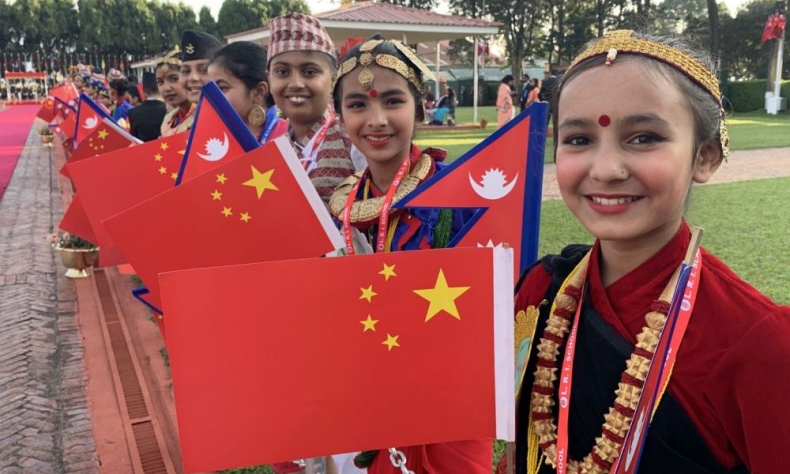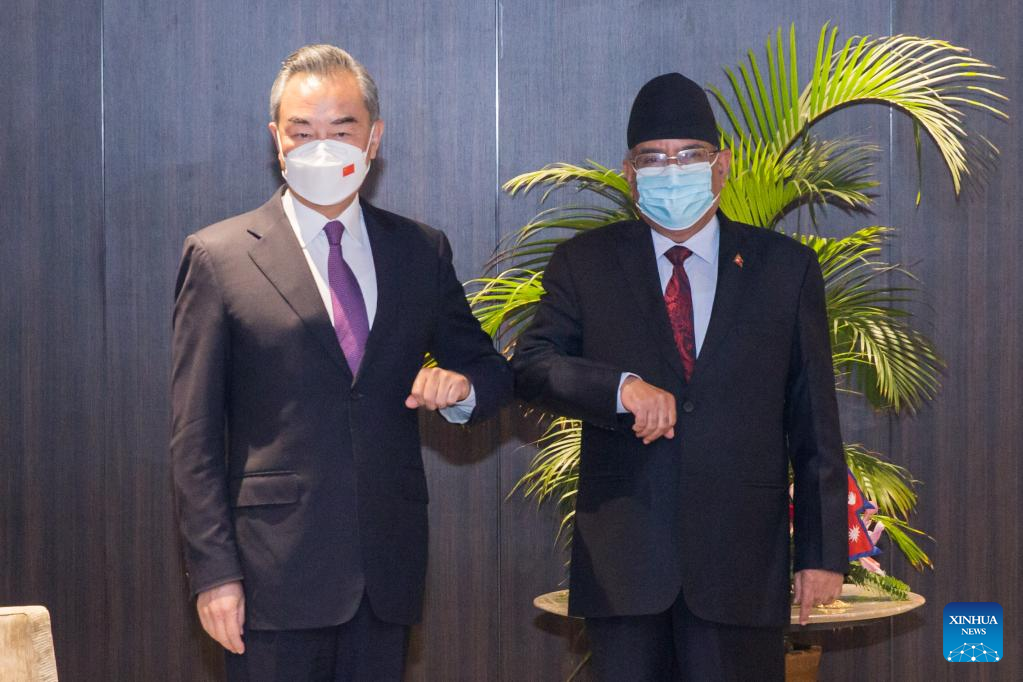Chinese Diplomacy of Peace and Prosperity

China’s development adds to a more powerful force for peace and will bring new development opportunities for developing countries while seeking to achieve the goal of building a community with a shared future for mankind.
Chinese State Councilor and Foreign Minister Wang Yi recently concluded his trip to South Asia, choosing Kathmandu as the last overseas destination with the lengthiest stopover, which indicates Beijing’s willingness to engage more deeply with the Himalayan region.
Before landing in Kathmandu, Wang had visited Islamabad, Kabul and Delhi where a consensus on major global issues was evidently echoed among the regional leaders against a backdrop of growing Cold War attitude while the West is preoccupied with “fueling” the Ukraine conflict. As the world is full of chaos and undergoing rapid transformations, Wang’s visit to Kathmandu, while further cementing bilateral ties, has set a new solid ground of cooperation aimed at safeguarding core mutual interests, regional peace and stability along with partnership to address the development deficit in the region.
Cherishing the traditional friendship between the peoples residing on the two sides of Qomolangma, the Chinese diplomatic approach of stability, peace and prosperity, once again is being welcomed in Nepal as mainstream media in the country hailed Wang’s visit with the aphorism that “it could not have come at a more appropriate time.”
Wang has forthrightly reaffirmed the continuous legacy of Beijing’s consistent and balanced diplomacy. During his meetings with Nepali leaders, Wang pronounced that no matter how the international scene and domestic situation of the two countries change, China will promote the building of a China-Nepal community with a shared future along the direction set by the leaders of the two countries. Analysts in Nepal say, with the latest high-profile visit, China has successfully demonstrated its priority allocation to regional diplomacy signaling it to be the key focus going forward.

The Nepalese aspire to transform the nation from a landlocked to a “land-linked” country situated between two of the world’s largest economies along the line China promised in 2019. The Transport and Transit Agreement signed by Beijing and Kathmandu in 2016 has offered the landlocked country an opportunity to free itself from geographical constraints. In a country where infrastructure shortfall has become a chief characteristic, China’s Belt and Road Initiative lifted hopes, with some people even assuming the Chinese high-speed rail will come to Nepal via the Tibetan mountains.
As it never fails to sense Nepali aspirations, the Chinese side during Wang’s stay in Kathmandu defined its willingness to provide support in three aspects: first, through a friendly policy for a development path suited to Nepal’s national conditions while calling the parties and party factions to jointly explore a governance model that is conducive to promoting political stability, economic growth and people’s livelihood. The second aspect China has attached great importance to is Nepal’s independence while pursuing domestic and foreign policies that minimize geopolitical games and safeguard its sovereignty, independence and territorial integrity regardless of its size. China has eloquently expressed its wish for Nepal to become a shining example of cooperation between China and South Asia. The third, as many Nepalese were expecting, China has underlined the importance of furthering projects under the BRI, which is expected to boost Nepal’s national infrastructure and speed up its development.
The foreign ministry of Nepal hailed Wang’s visit as “a milestone to strengthen bilateral relations” at a press conference following his visit. Moreover, both sides have agreed to complete the China-Nepal cross-border railway project, which has been welcomed by the two peoples.
Many in Nepal agree that China is championing development and multilateralism while the BRI offers connection and integration in an age of division. During his latest trip, Wang has left a memo in South Asian capitals that China’s development adds to a more powerful force for peace and will bring new development opportunities for developing countries while seeking to achieve the goal of building a community with a shared future for mankind.
The author is a journalist based in Nepal. He writes on international relations and diplomacy.
 Facebook
Facebook
 Twitter
Twitter
 Linkedin
Linkedin
 Google +
Google +










